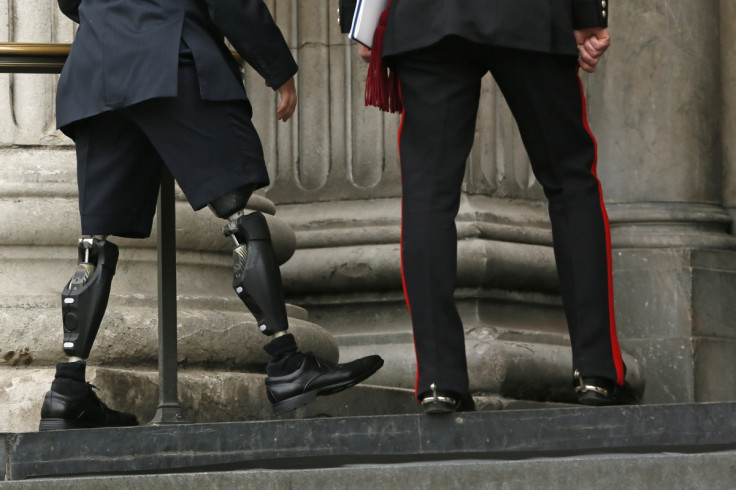Afghanistan war hero remortgages home to undergo reconstructive surgery in Australia

Clive Smith is a war hero who lost both his legs in an improvised explosive device (IED) explosion in Afghanistan. Sadly, he is now forced to remortgage his home to raise enough funds to pay for a reconstructive surgery in Australia.
Sapper Smith stepped on a landmine while patrolling in Nahr-e Saraj district of Helmand in Afghanistan and subsequently lost both his limbs. He will have to shell out £90,000 ($134,000) for the surgery that he hopes will change his life for the better.
The revolutionary treatment technique is called osseo-integration, which involves fitting the surface of a synthetic implant in such a way that it has direct contact with the bone. A titanium rod is then implanted into the bone, which protrudes through a gap in the stump. A prosthetic, robotic leg is then attached to the stump, enabling the wearer to move more freely.
Although the National Health Service (NHS) is likely to offer the procedure to veterans in 2016, there is not much hope for Smith as the NHS plans to conduct trials on only 20 patients initially. The war veteran claimed that he had been waiting for the past 12 months to be fitted with a new pair of prosthetic legs, as the ones he was provided by the NHS caused him to suffer "agonising chafing and blistering" due to poor fitting.
For the past year, Smith has been strapped to a wheelchair waiting for a new pair of prosthetics. However, he finally lost patience and decided to fly to Australia to get a new pair of limbs and pay for it himself.
Commenting on the alleged lack of medical options provided by the NHS for war veterans like himself, Smith said: "I've finally lost my patience with the NHS. They are not looking after veterans. I'm stuck in a wheelchair with my life on hold and it's not fair. I want to be out and about but I can't because I've no legs to wear. We were told we would get the same level of care for my prosthetics on the NHS, but it just hasn't been."
Expressing his disappointment with the government and the NHS, Smith averred: "I've put my life on the line for my country and I feel let down that I am now having to put my home on the line to get the best treatment."
In Australia, he will be operated upon by doctor Munjed Al Muderis – a refugee from Iraq – who felt that he was indebted to soldiers like Smith who have fought to rid the world of terrorism. In a statement, Al Muderis said: "These young British soldiers were sent to help Iraq and Afghanistan stand on their own two feet and were met with terrorism. I feel ashamed of that. The very least I can do is say sorry by helping them get their mobility back."
Help for Heroes, a British charity, has offered to fund Smith's two-month stay in Australia. A spokesman for the charity said: "We are delighted to be able to give Clive £9,000 to help him while he is in Australia."
The NHS was reportedly "disappointed" to hear of Smith's experience. A spokesperson said: "Providing excellent care for war veterans is a priority."
© Copyright IBTimes 2025. All rights reserved.






















